For Halloween, I decided to make a change from my usual white roses, opting instead for a stunning orange-hued bouquet. They were extremely hardy, more so than the delicately perfumed varietals that are from the Var. “They will last you two weeks, no problem,” the vendor assured me. “They are so beautiful, ” I thanked him as I paid. “Where are they from?” “Are you ready for this? Ethiopia.” My heart sank. I instantly knew the true story behind these flowers, one that drained them of their color, turning them to gray.
Photo ©Remi Benali
In 2003, Remi and I were given one of our most fascinating assignments. We were to delve deep into the Omo Valley in the south-eastern corner of Ethiopia to do a story on the Surma tribe for Grands Reportages Magazine here in France. It took three days of bouncing in a 4×4, the last of which was off-road, to arrive in the region. I remember getting out of the truck with relief, only to see a young boy licking the dust off the vehicle. “Oh, don’t do that,” I whispered in vain. Here we were beyond language, we had driven to the other side of the moon.
Photo ©Remi Benali
As with the other tribal peoples in the area, the Surma were living in conditions similar to those of the Bronze Age. Their reputation as fierce warriors was balanced out by a finesse for decorating their bodies with paint made out of chalk from the surrounding hills.
Photo ©Remi Benali
Photo ©Remi Benali
This is the beginning of the English version of my article, “Surma Pride”:
A battle is raging in the land of the Surmas, fierce warriors hidden in the Omo Valley. United body and soul to their cattle, they engage in fierce combat to conquer and protect their herd. Will they resist the changes that are over-taking so many traditional cultures in the region?
“Now I go to drink the blood.” Luko beckons us to follow him through the herd of 40 or so cows that graze in the dappled mid-afternoon sunlight. Suddenly, he leaps forward with the agility of a cat, grabs hold of the hind legs of a blond bull, and, with the help of three others, subdues it into submission. Then, lowering himself beneath its neck, he takes aim and releases his bow. Once, twice, thrice–no luck. He stops to sharpen the point of his arrow and on the fourth try, a stream of bright red blood comes tumbling forth. His son extends a calabash to catch the flow and all are silent as the bull’s eyes roll back into its head. When it is full, Luko reaches around for a handful of leaves–his naked body, skin so black that it is almost purple, brushing against the silk of the cow–and gently, meticulously cleans its wound. He takes the bowl and drinks, slowly, with no trace of blood escaping onto his lips. As he scatters the remaining dregs on the grass for his dog, Luko`s movements are heavy and awkward, as if drunk from the power of the fresh blood that is coursing through his veins.
Luko is one of an estimated 10,000 people who comprise the Surma tribe of Ethiopia. Renowned as fierce warriors, they are believed to have once been the dominators of the lower Omo Valley. Due to famine and tribal warfare, they have slowly been pushed past the north-western shores of the Omo River, close to the border with Sudan. It is one of the most inaccessible regions on the African continent–an arduous three days drive from the capitol of Addis Abeba across a mountainous road that bends like a roller-coaster, slowly dissolving into a dust as dark and slippery as oil. Woe betides the traveler that is caught here when the rainy season descends–as Mother Nature does not call, she demands. Indeed, as our trip was just before the first rains of April, such were our concerns. Each night, as the rains would pound on our tent like a drum we would think, “Will we be able to get out?”
Text ® Heather Robinson
Photo ©Remi Benali
Photo ©Remi Benali
Our experience amidst the Surma was both draining and incredibly rewarding. During our afternoon nap one day, a thieving member of a neighboring tribe was captured. We were woken up by the shot that killed him. Thank goodness that our guard only told us that he didn’t have any bullets in his rifle on the final day. And yet there were incredibly tender moments as well. The boy that I am holding in the photo above followed us everywhere, to the point that we made up a song about him. “I’ve got a sweetie, a sweetie on the side,” it began as an ode to his forever being perpendicular with our knees. At some point, he casually reached up to take my hand and by the end of our trip, he was doing his best to sing along, mainly coming in squeakily at the end with each “siiiide.” Exceptional beauty, exceptional kindness.
Photo ©Remi Benali
Photo ©Remi Benali
The Surma’s way of life, as is that for all of the tribes in the Omo Valley, is in danger. When Remi returned to the region in 2005, the road that we had heard would link Addis Abeba, the Ethiopian capital, to Nairobi was well under way, bringing with it not only an influx of tourism but also disease and prostitution. Even more frightening, the Ethiopian government has recently increased the amount of land that can be rented to foreign corporations that are happy to cultivate the rich soil, even if that means displacing hundreds, if not thousands, of tribal members from their lands. At best, the tribesmen will be “relieved” of their traditions and converted into plantation workers. At worst, these completely self-sufficient people will be stripped of their means of survival entirely. Furthermore, there is now a plan to build the GIBE III dam that will entirely block the water flow of the Omo River in order to irrigate the land for future plantations. For further information and if you would like to be involved, please see the recent article on Survival International’s website: Survival International.
I want to thank Remi for allowing me to use his beautiful photography to illustrate this post. As all images are copyrighted world-wide with the Library of Congress in Washington, DC, please do not borrow, print, pin or convert them in any form.
Photo ©Remi Benali


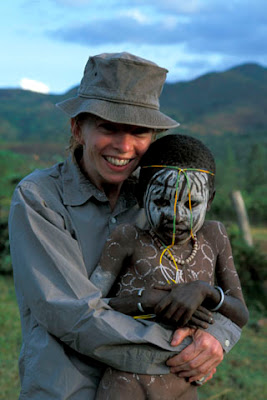

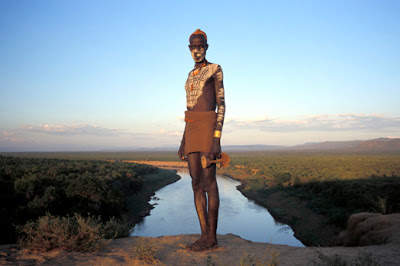
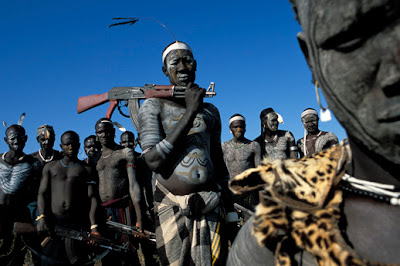
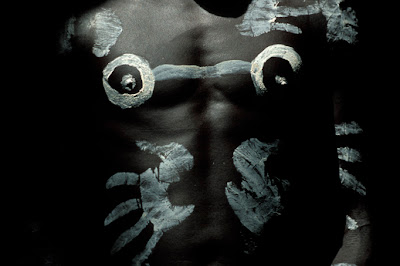
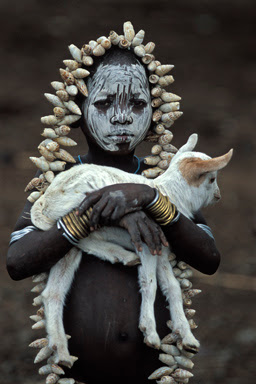
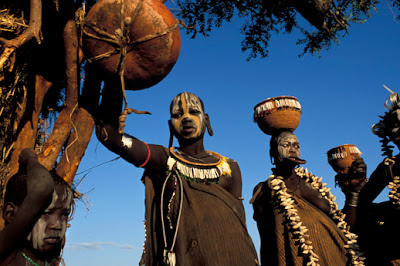
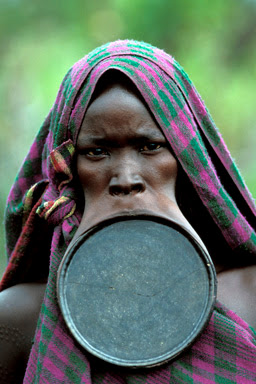
Oh, Heather, this must have been a most amazing experience! One that most of us will never truly witness in our lifetime. Remi's photos are beautiful.
~ Clare x
Oh my LLNYCBFF, thank you so very much for your wonderful compliments. I need to get caught up with the terrible (French accent) duo! Love to you!
What a perfect duo you two are. Gorgeous, breathtaking photos and the exact words to match.
What is to become of the world indeed Jane and Lance? Well, I am heartened by people like yourselves and all of you that have left such wonderful comments here. As several of you have mentioned, each of us can do our little part to make things better.
Virginia, yes, I am assuming that the rose came from stolen lands. There certainly wasn't that type of agricuture prevelant before and I have seen the problems on many levels that it has had in Kenya, and that in a country with sedentary people.
I will pass your compliments on to Remi, I know that he will be touched. There are more such photos on his website: http://www.remibenali.com for those that are interested!
yes, lived and worked in Africa for 8 years. yes, beautiful people, tragic situations, heartbreaking poverty, corruption on so many levels. yes, it up to each of us to be aware of our own actions and inaction. thank you.
WOW!The photos are beautiful as you are!How did that last lady eat?Love the story of the little boy following you around!Sounds like you two have had some great adventures.Perhaps, a book in the future?
A poignant story with enchanting images. It certainly puts life into perspective. We should never give up on the power of one – each of us can make a positive difference to the world as you have so beautifully illustrated here. Thank you for linking is to Survival International.
Warm wishes.
Hello Heather:
What a very moving post, so tenderly and beautifully illustrated with Remi's magnificent photographs. Yes, our hearts would have been saddened by the story of the orange rose too, more so for your having been amongst these proud and wonderful people. What is to become of the world?
I agree with Virginia, Heather. Remi's photography is simply breathtaking. Your story complements it perfectly. What a unique adventure this trip must have been for the two of you! Veronique (French Girl in Seattle)
My eldest son, who is studying international relations, tells me that Ethiopia is the fastest growing population in the world. And he despairs what will become of the poorest of them. Which makes your heartfelt account even more compelling. But what of the rose Heather? Does that mean it is farmed on an area now owned by foreigners?
Remi's photographs are, as usual, straight to the soul in their beauty and intensity. Virginia xx